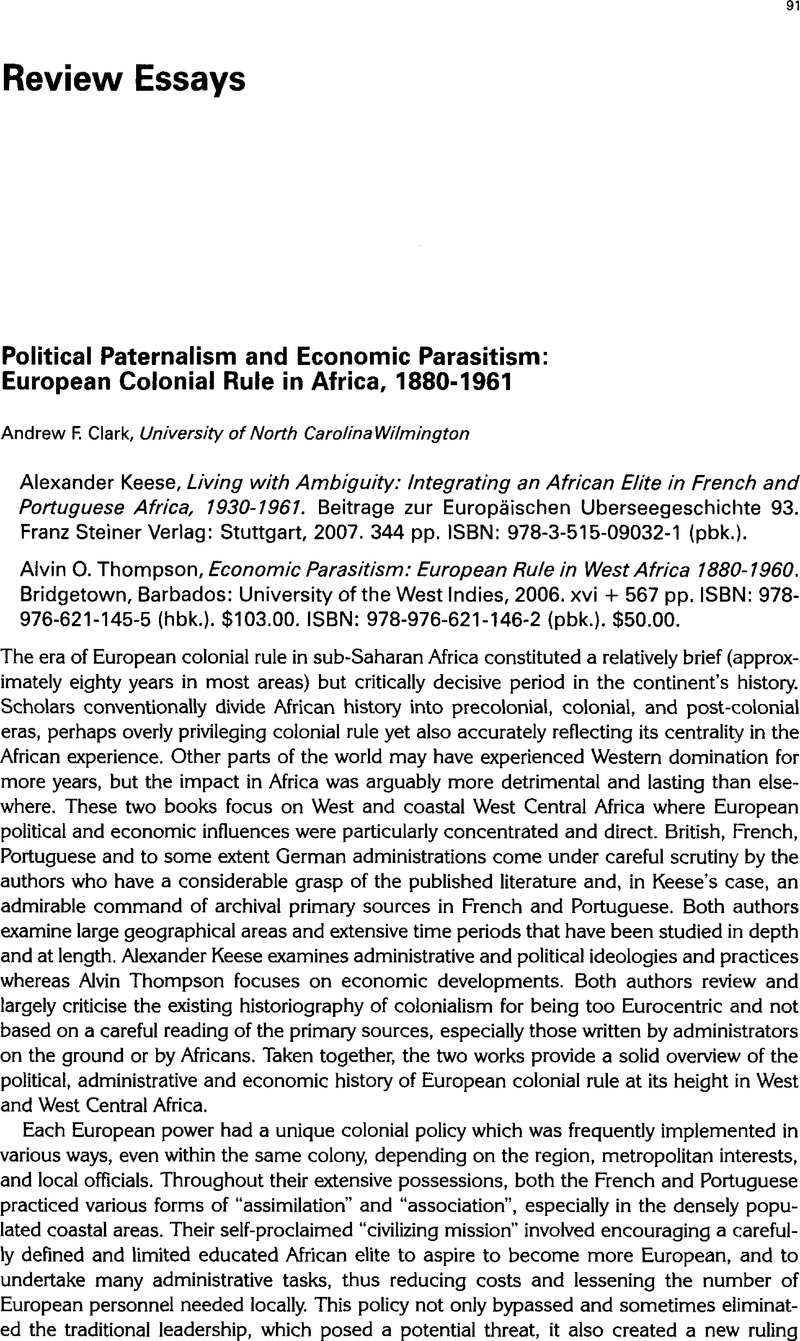No CrossRef data available.
Article contents
Political Paternalism and Economic Parasitism: European Colonial Rule in Africa, 1880–1961
Review products
Published online by Cambridge University Press: 11 January 2010
Abstract

- Type
- Review Essays
- Information
- Copyright
- Copyright © Research Institute for History, Leiden University 2008
References
Notes
1 See: Zeuske, Michael, Sklaven und Sklaverei in den Welten des Atlantiks, 1400–1940. Umrisse, Anfänge, Akteure, Vergleichsfelder und Bibliografien. Münster/Hamburg/London: LIT Verlag, 2006Google Scholar (Sklaverei und Postemanzipation, ed. Michael Zeuske, Bd. 1) [Slaves and Slaveries in the Worlds of the Atlantic]; Zeuske, Schwarze Karibik. Sklaven, Sklavereikulturen und Emanzipation. Zürich: Rotpunktverlag, 2004 [Black Caribbean. Slaves, Cultures of Slavery, and Emancipation].
2 Handler, Jerome S., “Life Histories of Enslaved Africans in Barbados”, Slavery and Abolition, 19:1 (1998), 129–41CrossRefGoogle Scholar; Handler, , “Survivors of the Middle Passage: Life Histories of Enslaved Africans in British America”, Slavery and Abolition 23 (2002), 25–56.CrossRefGoogle Scholar
3 Pertaining to the concept of agency in global perspective see Behrend, Stephen, Eltis, David, and Richardson, David, “The Costs of Coercion: African Agency in the Pre-modern Atlantic World”, Economic History Review 54/3 (2001), 454–76.CrossRefGoogle Scholar
4 de Alencastro, Luiz Felipe, O Trato dos Viventes. Formacão do Brasil no Atlantico Sul, seculos 16. e 17. São Paulo: Companhia das Letras, 2000.Google Scholar
5 Fabre, Geneviève, “The Slave Ship Dance”, in Diedrich, Maria, Gates, Henry Louis Jr., and Pedersen, Carl, eds., Black Imagination of the Middle Passage. Oxford: Oxford University Press, 1999, 33–46.Google Scholar
6 In full see: Michael Zeuske in: www.sehepunkte.de/2007/11/11377.html.


